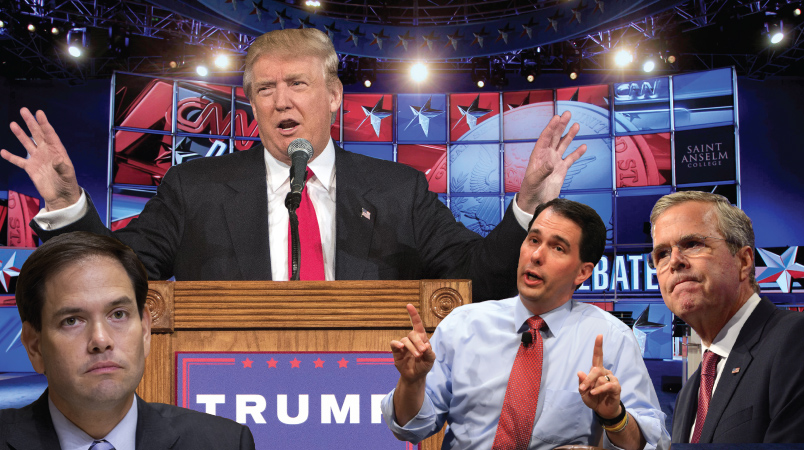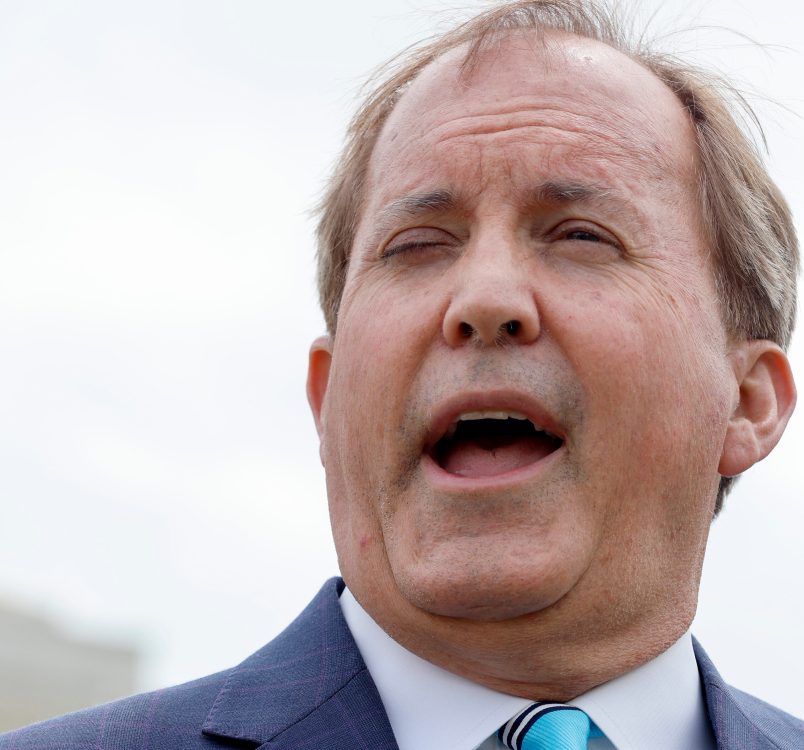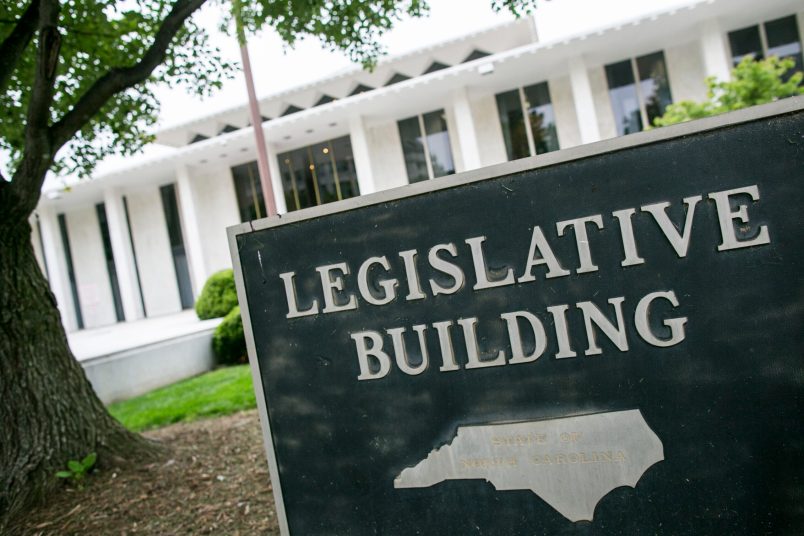Donald Trump is the man to beat at Thursday’s GOP debate, where the Republican presidential candidates trailing him in the polls will attempt to outmaneuver the billionaire’s rhetorical body-slams.
Much of the focus has been on Trump’s hard line on immigration, with other 2016 candidates divided as to whether “The Apprentice” star has carried the party too far to the extremes. However, on a variety of other policy positions, Trump has shown himself to be at odds with the traditional Republican platform. Here’s which issues conservatives wishing to outflank Trump should attack him on:
Abortion
With state and federal lawmakers responding to an anti-abortion campaign of “sting” videos against Planned Parenthood, abortion — a topic Trump on which has flip-flopped — will almost certainly come up Thursday.
Trump described himself as having “pro-choice instincts” in a 2000 book.
“I support a woman’s right to choose, for example, but I am uncomfortable with the procedures,” Trump wrote in “The America We Deserve,” which came when he was contemplating a presidential campaign as a member of the socially liberal, economically conservative Reform Party.
By 2011’s Conservative Political Action Conference (CPAC), when the billionaire was flirting with a run at the GOP presidential nom, Trump indicated he had an anti-abortion “conversion” of sorts. Yet anti-abortion activists have continued to treat his newfound opposition skeptically, particularly after he flubbed a question in a 2011 MSNBC interview regarding the right to privacy and the constitutional logic behind Roe v. Wade.
“What does that have to do with privacy? How are you equating pro-life with privacy?” Trump said.
Responding to that interview, the anti-abortion news site LifeNews.com said Trump needed “to study up on the abortion debate if he wants his pro-life conversion to be taken seriously.”
Healthcare
Also in the 2000 book, Trump called for the U.S. “to re-examine the single-payer plan,” like Canada’s, and in interviews during that year’s presidential campaign, reiterated his interest in universal healthcare. Speaking to The Advocate, Trump endorsed a “comprehensive” healthcare system funded by corporate taxes.
When TPM asked Trump in 2011 about his healthcare views, he made clear that he opposed Obamacare, a must for Republicans. But he did not renounce outright his previous interest in liberal approaches like Canada’s single-payer system.
“I am for looking at a country that has the best healthcare plan, and also the most efficient healthcare plan,” he said.
The Trump campaign is now pushing back against claims that he supported “socialized medicine,” and instead Trump said he intends to replace Obamacare with “something terrific.”
Entitlement Reform
In the same 2011 TPM interview, Trump also signaled he opposed some Republican efforts to overhaul entitlement programs, particularly those for seniors.
“Anything that’s going to hurt our seniors, I am against it,” he said, adding he was “concerned” that Republicans were getting “too far out in front” on efforts to retool Medicare.
This time around, GOP candidates are already discussing “phasing out” programs like Medicare, but Trump has held onto his defense of entitlement programs as they stand today.
When asked by Fox and Friends in April about Republican plans to alter Social Security, Trump dismissed the effort: “Even Tea Party people don’t like it.”
“They’re attacking Social Security — the Republicans — they’re attacking Medicare and Medicaid, but they’re not saying how to make the country rich again,” Trump added.
Trade
Trump has also broken with Republicans who have supported Obama’s global trade efforts. Trump has slammed the Trans-Pacific Partnership (TPP) trade deal, and of the GOP leaders including House Speaker John Boehner (R-OH) and Senate Majority Leader Mitch McConnell (R-KY) who have supported measures to facilitate White House’s trade negotiations, Trump said “they don’t understand” the issue and “they’re making a mistake.”
In his 2011 book “Time To Get Tough,” Trump said he would impose threatening tariffs on countries with unfair trade practices as well as on U.S. companies that outsourced jobs overseas, an approach that is likely not even be legal.

Criminal Justice Reform
Criminal justice reform is one of few areas with bipartisan momentum, with many fiscal conservatives trumpeting red states’ success in curbing mass incarceration. Almost all of the 2016 candidates have lined up in support of the movement. However, it is unclear whether Trump has moved on from the tough-on-crime era, during which he stressed why he thought of “tough anticrime policies” were necessary.
“The next time you hear someone saying there are too many people in prison, ask them how many thugs they’re willing to relocate to their neighborhood. The answer: None,” Trump wrote in his 2000 book.
Previously, in 1989, he had taken out full-page ads in major New York newspapers calling for the death penalty for those involved in a brutal Central Park rape case, even if they were minors; the five black and Hispanic teens initially convicted for the crime were later exonerated and were the recipients of a multimillion dollar settlement that Trump called “ridiculous” and a “disgrace” in 2014.
Trump’s discussion of crime in his most recent campaign has focused on the crime he believes immigrants in the United States illegally commit, but it appears his thoughts on the criminal justice system haven’t changed much in the last two decades.
When asked about the Black Lives Matter movement on “Meet the Press” Sunday, Trump said “some horrible mistakes are made,” but pivoted towards a discussion of “this tremendous crime wave and killing wave that’s happening in this country.”
“We have to give power back to the police because crime is rampant,” he said.






